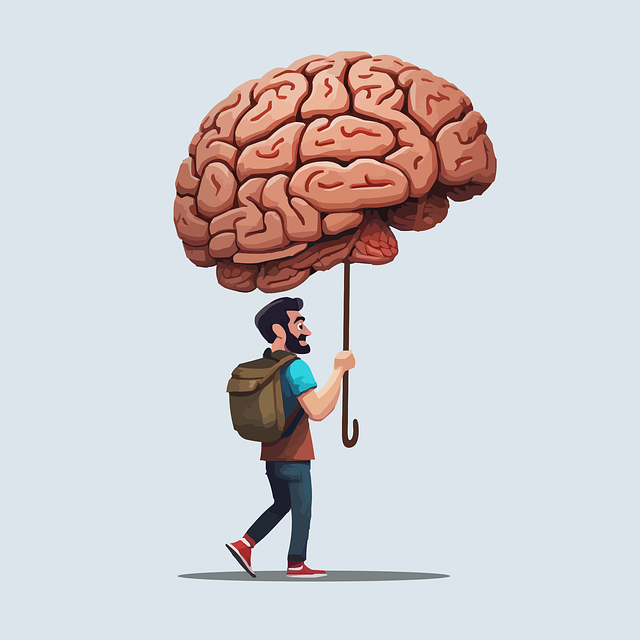Healing After Loss: Louisville Bereavement Counseling for Emotional Resilience
Louisville Sexual Dysfunction Therapy offers specialized counseling for individuals dealing with los…….
In the intricate landscape of healthcare, Louisville Sexual Dysfunction Therapy (LSDT) stands as a specialized field dedicated to addressing and treating sexual dysfunctions that significantly impact individuals’ quality of life and relationships. This therapy approach is not merely a treatment modality but a holistic journey towards restoring and enhancing sexual health, well-being, and overall happiness. This article aims to offer an in-depth exploration of LSDT, its various facets, global reach, and the profound influence it has on society. By delving into its historical roots, methodologies, and future prospects, readers will gain a comprehensive understanding of why this therapy is essential and how it continues to evolve.
Definition: Louisville Sexual Dysfunction Therapy refers to a range of therapeutic interventions designed to identify and treat various sexual dysfunctions, including problems related to desire, arousal, orgasm, pain, and relationship issues. It involves a multidisciplinary approach, often combining psychological counseling, education, behavior therapy, and medical treatments as necessary.
Core Components:
Psychosexual Assessment: A thorough evaluation of an individual’s sexual history, beliefs, experiences, and behaviors to identify dysfunctions or concerns. This assessment helps tailor the treatment plan.
Individual and Couple Therapy: Sessions focused on addressing personal issues, improving communication, resolving conflicts, and fostering a healthier sexual relationship dynamic.
Behavioral Therapies: Techniques such as cognitive-behavioral therapy (CBT) and behavioral activation help individuals change negative thought patterns and behaviors related to sex.
Medications: In some cases, prescribed medications can aid in treating specific dysfunctions like erectile dysfunction or vaginal dryness.
Education and Skill-Building: Providing information about sexual health, anatomy, and techniques to enhance sexual experiences is a crucial aspect of LSDT.
Historical Context: The roots of LSDT trace back to the early 20th century when Sigmund Freud and other pioneers began exploring the psychological aspects of sexuality. However, it was in the late 1980s and 1990s that the field emerged as a distinct specialty. The increasing awareness of sexual health issues and the need for comprehensive treatment led to the development of structured programs and professional organizations dedicated to LSDT.
Significance: This therapy is vital for several reasons:
Louisville Sexual Dysfunction Therapy has transcended geographical boundaries, becoming a global phenomenon:
| Region | Key Trends | Impact |
|---|---|---|
| North America | Increasing awareness of female sexual dysfunction, leading to more women seeking treatment. | Higher demand for specialized services, prompting the growth of LSDT clinics. |
| Europe | Integration of LSDT into national healthcare systems, making it more accessible. | Improved accessibility contributes to better sexual health outcomes across the continent. |
| Asia-Pacific | Rising prevalence of erectile dysfunction due to aging populations and lifestyle changes. | Presenting a significant market opportunity for LSDT providers and pharmaceutical companies. |
| Latin America | Growing acceptance of open discussions about sexuality, encouraging individuals to seek therapy. | Increased visibility leads to more people addressing their sexual dysfunctions proactively. |
Global trends reveal a growing recognition of sexual health as an integral part of overall well-being, driving the demand for LSDT services worldwide.
The economic landscape surrounding Louisville Sexual Dysfunction Therapy is complex and multifaceted:
Technology has played a transformative role in Louisville Sexual Dysfunction Therapy:
The regulatory landscape for LSDT varies across regions, impacting its delivery and accessibility:
Despite its benefits, Louisville Sexual Dysfunction Therapy faces several challenges and criticisms:
Case Study 1: Emily’s Journey to Recovery
Emily, a 32-year-old woman, struggled with vaginal dryness and pain during intercourse, leading to relationship strain. She sought LSDT after conventional treatments failed. Through a combination of CBT, pelvic floor physical therapy, and lubricants, Emily learned coping strategies and improved her sexual experiences. This case illustrates how tailored therapies can address unique dysfunctions effectively.
Case Study 2: John’s Battle with Erectile Dysfunction
John, a 55-year-old man, experienced erectile dysfunction after years of stress and high-risk lifestyle choices. LSDT helped him manage his condition through lifestyle changes, medication, and psychotherapy. Over time, he regained confidence and improved intimacy with his partner. This study shows the holistic approach’s effectiveness in treating age-related dysfunctions.
The future of Louisville Sexual Dysfunction Therapy is promising, with several growth areas and emerging trends:
Louisville Sexual Dysfunction Therapy is a dynamic field that has transformed the way we approach sexual health. Its global impact, continuous technological advancements, and growing acceptance highlight its significance in modern healthcare. Despite challenges, LSDT offers hope and healing to millions worldwide, contributing to improved relationships, enhanced well-being, and a more open dialogue about sexuality. As society continues to evolve, so too will the practice of LSDT, ensuring that sexual health remains a vital aspect of comprehensive healthcare.
What is the difference between Louisville Sexual Dysfunction Therapy and traditional sex therapy?
LSDT takes a broader approach, addressing not just specific sexual behaviors but also psychological, medical, and social factors contributing to sexual dysfunctions. It offers a more holistic treatment model.
How long does LSDT treatment typically last?
Treatment duration varies depending on the complexity of the dysfunction and individual progress. Some conditions may require brief interventions, while others might need ongoing support for years.
Is LSDT covered by insurance?
Insurance coverage for LSDT varies by region and provider. Many private insurers cover it, but checking with your specific plan is essential. Some countries have national healthcare systems that may also provide funding.
Can men and women both benefit from LSDT?
Absolutely. LSDT is designed to address a wide range of sexual dysfunctions across genders. It focuses on understanding individual experiences and providing tailored solutions.
What if I’m uncomfortable discussing my sexual issues with a therapist?
Finding the right therapist is crucial. Many professionals are trained in creating safe, non-judgmental spaces. Open communication with your therapist about your concerns can foster trust and facilitate effective treatment.

Louisville Sexual Dysfunction Therapy offers specialized counseling for individuals dealing with los…….